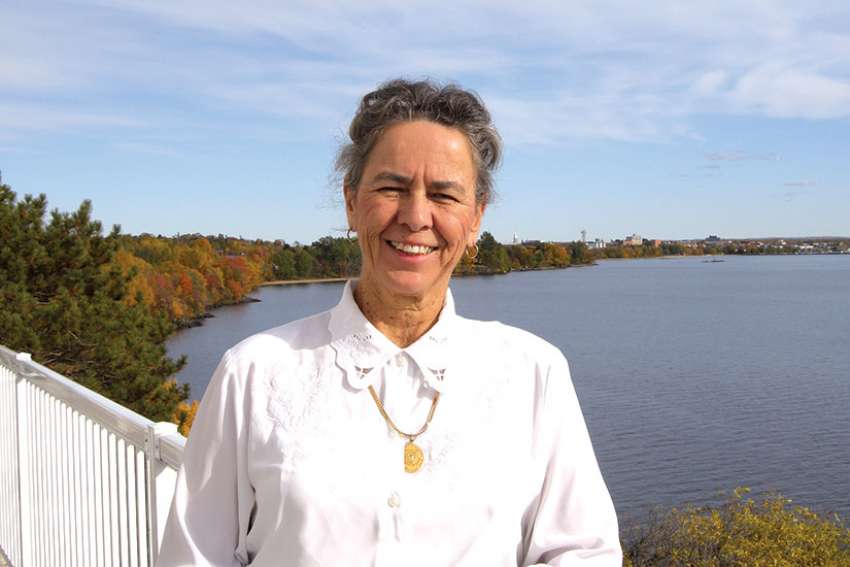“I’m quite honoured and pleased,” said the 75-year-old Sister of St. Joseph. “(It provides) the opportunity to say a few words about what I see as reconciliation between indigenous people and settlers.”
Solomon, an Ojibway from Sault Ste. Marie, Ont., has served as a long time member of KAIROS Aboriginal Sharing Circle, a retreat leader with Development & Peace and a founding member of the Our Lady of Guadalupe Circle which is connected to the Canadian Conference of Catholic Bishops. She’s also spent time as a spiritual director, pastoral ministry counsellor and a missionary in Guatemala.
That’s in addition to the 17 years she spent teaching elementary school students.
Her message about reconciliation is one she encourages every teacher to spread to their students.
“Catholic teachers, or any teacher, really has the responsibility to help children understand what reconciliation is about ... and what living in a peaceful non-violent way is about,” said Solomon, who is coordinator of the faith and justice ministry in her congregation. “It is very important that teachers communicate a sense of valuing dignity... and to be loving and caring. (But) we don’t give our children enough tools for that at this point.”
The tools she is referring to are “compassion,” “generosity” and “respect.”
After taking her final vows to enter the order in 1961, Solomon, who had been educated by members of the Sisters of St. Joseph as a child, returned to the classroom as a teacher. And while the formal lessons changed depending on the grade level of her students, the core concept she tried to relay never wavered.
“We all matter because we are all children of God,” she said. “I was advised before I went into teaching by the sister who was responsible for the young novices ... (to) go into the heart and mind of a child knowing that God has been there before you.”
On April 30 Solomon officially accepts her award during Pax Christi’s annual Teacher of Peace dinner in Toronto.
Tom Sagar, a spokesperson for Pax Christi, called Solomon “a role model for women in leadership” because of her ability to forge relationships out of respect and compassion.
“A born peacemaker, she is an effective bridge builder capable of understanding aboriginal and settler mentalities,” said Sagar. “She does this in a thoughtful and compassionate way that empowers everyone.”
Solomon remains hopeful reconciliation is possible between aboriginal and non-aboriginal people.
“The Catholic faith community has people responding to the calls for reconciliation on very different levels,” she said. “But it is not as visible as it might be in some of the other (communities). It does give me hope that there are groups responding.”
Hope, however, is not enough.
“Many people are conscious of it and working towards that kind of reconciliation and we have commitments made to do that,” she said. “But there are also people who don’t know anything about it.
(This) is an opportunity to raise awareness about how important this process of reconciliation is for us as a country and for us as individuals.”


